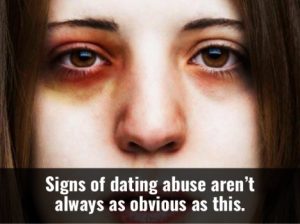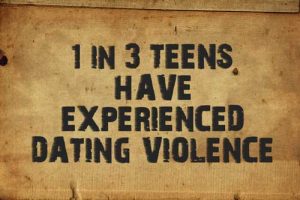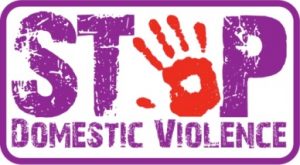Tips for Parents
Parents: Start Relating Before They Start Dating
Welcome to one of the most challenging phases of parenting—adolescence.
In all likelihood, your young teen is experiencing significant emotional, psychological and physical changes. While your teen needs you more than ever to help them through this challenging time, they are also seeking independence and turning to peers. While it may seem easier to let your teen shake you loose, hang on. They really do need you.
Right now, your teen is forming relationships that set the stage for future relationships. Given that 1 in 5 high schoolers experience dating violence, you’ll want to be sure you do your part to help your child understand what a healthy relationship feels and looks like. Below you’ll find information and tools to help you talk to your kids about healthy relationships, guidelines on how to navigate their world of cell phones and social networking and how to talk to your kids about being an upstander vs. a bystander when it comes to bullying.
10 Tips on Talking about Healthy Relationships with Teens
- Encourage open, honest, and thoughtful reflection. Talk openly with young teens about healthy relationships. Allow them to articulate his or her values and expectations for healthy relationships. Rather than dismissing ideas as “wrong”, encourage debate —this helps young people come to his or her own understanding.
- Be sensitive and firm. Parenting a young teen is not easy—especially when it comes to helping him or her navigate their way through
 relationships. To be effective, you will need to find the balance between being sensitive and firm. Try to adapt to the changes faced by your child. Be willing to talk openly and respect differences of opinion. And, realize that the decisions you make will sometimes be unpopular with your young teen.
relationships. To be effective, you will need to find the balance between being sensitive and firm. Try to adapt to the changes faced by your child. Be willing to talk openly and respect differences of opinion. And, realize that the decisions you make will sometimes be unpopular with your young teen. - Understand teen development. Adolescence is all about experimentation. From mood swings to risk taking, “normal teenage behavior” can appear anything-but-normal. New research, however, reveals that brain development during these formative years play a significant role in young teen’s personality and actions. Knowing what’s “normal” is critical to helping you better understand and guide young people.
- Understand the pressure and the risk teen’s face. Preteens and young teens face new and increasing pressures about sex, substance abuse and dating. Time and time again, young teens express their desire to have parents/role models take the time to listen to them and help them think through the situations they face – be that person!
- Take a clear stand. Make sure young teens know how you feel about disrespect, use of abusive or inappropriate language, controlling behavior, or any forms of violence,
- Make the most of “teachable moments”. Use TV episodes, movies, music lyrics, news, community events or the experiences of friends to discuss healthy and unhealthy relationships.

- Discuss how to be an ‘upstander’. Teach teens how to stand-up for friends when he or she observes unhealthy treatment of his or her peers.
- Accentuate the positive. Conversations about relationships do not need to focus solely on risky behavior or negative consequences. Conversations should also address factors that promote healthy adolescent development and relationships.
- Be an active participant in your young teen’s life. Explore ways to know more about your young teen’s friends and interests. Find activities you can do together.
- Be prepared to make mistakes. You will make mistakes. Accept that you will make mistakes, but continue to help teens make responsible choices while trying to maintain that delicate balance of being sensitive, but firm.
Get Help
If you suspect your teen may be a victim of abuse, you are the most important resource and advisor for your child. If you need support there are people and resources available to help. Remind your teen that he or she deserves a violence free relationship and that abuse is NEVER appropriate and NEVER their fault.
If you think your son or daughter may be controlling, abusive, or violent with his or her partner, tell your child that abuse and violence are NOT acceptable and that violence will not solve problems. Let him or her know when you truly care for someone you don’t hurt them or try to control them. Abuse is a choice and there are resources and counselors that can help him or her understand the consequences, the alternatives to violence, and how to stop the abuse.
If your teen isn’t ready to openly communicate with you about his or her relationship, let him or her know there are confidential resources and trained individuals available to answer questions and help avoid unhealthy relationships. Pass on the information below, but let your teen know you are always available to talk.  Please reach out to us for help if you suspect your teen is in an unhealthy or abusive relationship. You can call us on our 24-HOUR HELPLINE at 610-437-3369.
Please reach out to us for help if you suspect your teen is in an unhealthy or abusive relationship. You can call us on our 24-HOUR HELPLINE at 610-437-3369.
If at any time you feel that you or your teen are in immediate danger, call 911.
Source: Futures Without Violence
Know the Warning Signs for an Abusive Relationship
What is teen dating abuse? Teen dating abuse describes actual or threatened acts of physical, sexual, psychological, and verbal harm by a partner, boyfriend, girlfriend or someone wanting a romantic relationship. It includes violence between two young people in a current or former relationship and can occur among heterosexual or same-gender couples. It can also include using the internet, social networking sites, cell phones, or text messaging to harass, pressure, or victimize.
What are the warning signs? Teens may be experiencing a variety of  physical and emotional changes during this time of their life. As a result, your young teen might not share everything that is happening in his or her life. Do your part – know the warning signs of an unhealthy relationship. Be on the lookout if your child displays any of these potential signs:
physical and emotional changes during this time of their life. As a result, your young teen might not share everything that is happening in his or her life. Do your part – know the warning signs of an unhealthy relationship. Be on the lookout if your child displays any of these potential signs:
Do you notice your daughter or son:
- Spending less time with family and friends?
- Excessive text messaging, phone calling, emailing or visiting with their boyfriend or girlfriend?

- Giving up things that used to be important to her/him?
- Starts having declining grades or missing school
- Being pressured by a girlfriend/boyfriend about what to do, where to go, or what to wear?
- Worried about upsetting her/his boyfriend/girlfriend?
- Apologizing or making excuses for her/his boyfriend’s/girlfriend’s behavior?
- Has injuries he/she tries to cover up or can’t explain
Talk it out: What are alternatives to what happened? How could it have been prevented? What is a healthy relationship? Why is respect important to having a healthy relationship?
How do you know if your teen is in an unhealthy relationship?
Let’s face it—figuring out what’s happening in your teen’s life and relationships can be very challenging. The use of technology makes this especially true.
It is also very difficult for a teen to recognize – and break free of – and unhealthy relationship.
But, you can help your teen decide if the relationship he or she is in is healthy.
Quiz: A Healthy or Unhealthy Relationship?
If you think your child may be in an unhealthy relationship, ask your teen to take this quiz to help him or her know if his or her relationship is healthy.
Does your boyfriend or girlfriend…
- Communicate openly with you when there are problems?
- Give you space to spend time with your friends and family?
- Support and respect you?
If your son or daughter answered YES to these questions, it is likely that s/he is in a healthy relationship. Encourage your teen to trust their instincts about the relationship to stay safe and comfortable.
If your son or daughter answered NO to these questions, ask your teen the following questions: Does your boyfriend or girlfriend ever…
- Try to stop you from seeing or talking to family or friends?
- Call you derogatory names, put you down, or criticize you?
- Threaten or scare you?
- Hit, slap, push, or kick you?
- Pressure or force you to do something sexual when you don’t want to?
- Humiliate you when you are alone or in front of others?
- Control where you go, what you wear, or what you do?
If your son or daughter answered YES to any of these questions, their health and safety may be at risk. Seek advice or help from a school counselor, pediatrician or family physician, or Turning Point of Lehigh Valley.



